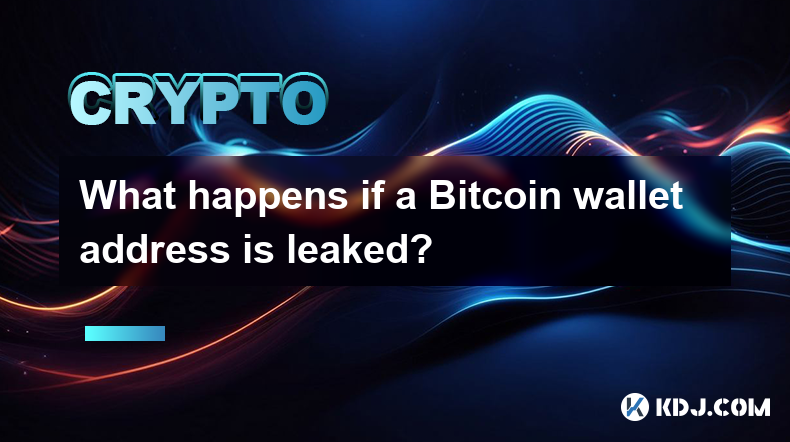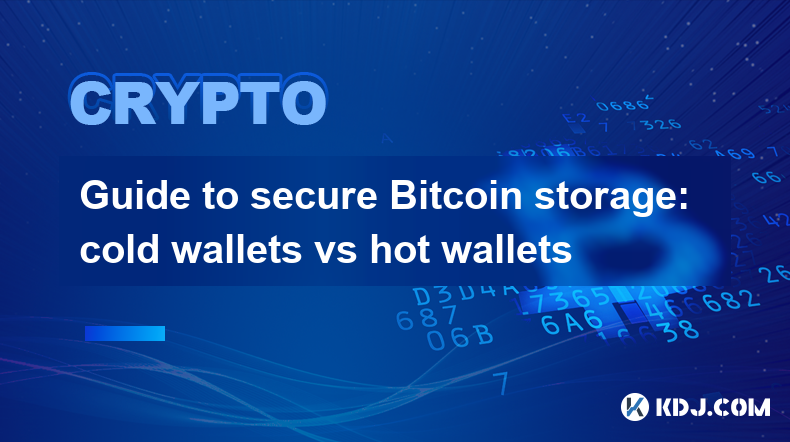-
 Bitcoin
Bitcoin $83,891.7312
-1.88% -
 Ethereum
Ethereum $1,578.4275
-3.33% -
 Tether USDt
Tether USDt $1.0000
0.00% -
 XRP
XRP $2.0794
-3.57% -
 BNB
BNB $581.8908
-0.92% -
 Solana
Solana $125.6113
-4.72% -
 USDC
USDC $1.0000
0.01% -
 TRON
TRON $0.2542
2.44% -
 Dogecoin
Dogecoin $0.1532
-3.25% -
 Cardano
Cardano $0.6060
-4.54% -
 UNUS SED LEO
UNUS SED LEO $9.3729
-0.62% -
 Chainlink
Chainlink $12.1807
-2.99% -
 Avalanche
Avalanche $18.8840
-5.20% -
 Stellar
Stellar $0.2359
-2.26% -
 Toncoin
Toncoin $2.8640
-4.28% -
 Shiba Inu
Shiba Inu $0.0...01167
-1.98% -
 Sui
Sui $2.0804
-4.68% -
 Hedera
Hedera $0.1572
-4.15% -
 Bitcoin Cash
Bitcoin Cash $318.3980
-3.27% -
 Litecoin
Litecoin $74.6060
-3.46% -
 Polkadot
Polkadot $3.5135
-3.83% -
 Dai
Dai $1.0001
0.01% -
 Bitget Token
Bitget Token $4.3450
0.02% -
 Hyperliquid
Hyperliquid $15.2439
-4.40% -
 Ethena USDe
Ethena USDe $0.9993
0.01% -
 Pi
Pi $0.6134
-9.10% -
 Monero
Monero $217.7508
1.15% -
 Uniswap
Uniswap $5.1593
-3.72% -
 OKB
OKB $52.0646
-0.19% -
 Pepe
Pepe $0.0...07144
-1.75%
What is Bitcoin? An in-depth analysis of its operating mechanism
Bitcoin operates on a decentralized blockchain, secured by mining and the Proof of Work consensus, allowing irreversible transactions managed through various wallet types.
Apr 09, 2025 at 02:42 am

Bitcoin is a decentralized digital currency that was created in 2009 by an unknown person or group using the name Satoshi Nakamoto. It operates on a peer-to-peer network, allowing users to send and receive payments without the need for intermediaries such as banks. In this in-depth analysis, we will explore the operating mechanism of Bitcoin, including its underlying technology, the blockchain, and the consensus mechanism that keeps the network secure.
The Blockchain: The Backbone of Bitcoin
At the heart of Bitcoin's operating mechanism is the blockchain, a distributed ledger that records all transactions made with the cryptocurrency. The blockchain is maintained by a network of nodes, which are computers that run the Bitcoin software and validate transactions. Each block in the blockchain contains a list of transactions, and once a block is added to the chain, the transactions it contains are considered confirmed and irreversible.
The blockchain's decentralized nature is what makes Bitcoin unique. Instead of a central authority controlling the ledger, the network of nodes collectively maintains it. This means that no single entity can alter the transaction history, making the system resistant to fraud and censorship.
Mining: The Process of Adding Blocks to the Blockchain
The process of adding new blocks to the blockchain is known as mining. Miners use powerful computers to solve complex mathematical problems, and the first miner to solve the problem gets to add a new block to the blockchain and is rewarded with newly minted bitcoins. This process is crucial for the security of the network, as it ensures that only valid transactions are added to the blockchain.
Mining also serves as a mechanism for issuing new bitcoins into circulation. The reward for mining a block is currently set at 6.25 bitcoins, and this reward is halved approximately every four years, a process known as the halving. This ensures that the total supply of bitcoins is capped at 21 million, making it a deflationary currency.
The Consensus Mechanism: Securing the Network
Bitcoin's consensus mechanism, known as Proof of Work (PoW), is what allows the network to agree on the state of the blockchain. Miners compete to solve the mathematical problem, and the solution they find is used to verify the transactions in the block. Once a miner finds a solution, they broadcast it to the network, and other nodes verify the solution and the transactions in the block.
If the majority of nodes agree that the block is valid, it is added to the blockchain, and the miner is rewarded. This consensus mechanism ensures that the network remains secure and that no single entity can control the blockchain.
Transactions: How Bitcoin Payments Work
Bitcoin transactions are the fundamental building blocks of the network. When a user wants to send bitcoins to another user, they create a transaction and broadcast it to the network. The transaction includes the sender's and recipient's public keys, the amount of bitcoins being sent, and a digital signature created using the sender's private key.
Nodes on the network verify the transaction by checking the digital signature and ensuring that the sender has the necessary funds. Once verified, the transaction is included in a block and added to the blockchain. The recipient can then spend the bitcoins they received, and the transaction is considered final after it has been confirmed by multiple blocks.
Wallets: Storing and Managing Bitcoins
To interact with the Bitcoin network, users need a wallet, a software program that stores their private keys and allows them to send and receive bitcoins. There are several types of wallets, including software wallets, hardware wallets, and paper wallets.
Software wallets are programs that run on a computer or mobile device and store the user's private keys. Hardware wallets are physical devices that store the private keys offline, providing an extra layer of security. Paper wallets are physical documents that contain the private keys, and they are often used for long-term storage of bitcoins.
To set up a Bitcoin wallet, follow these steps:
- Choose a wallet type: Decide whether you want to use a software wallet, hardware wallet, or paper wallet based on your security needs and preferences.
- Download or purchase the wallet: If you choose a software wallet, download it from the official website. For a hardware wallet, purchase it from a reputable seller. For a paper wallet, use a trusted generator.
- Generate a new address: Use the wallet to generate a new Bitcoin address, which you can share with others to receive payments.
- Secure your private keys: For software and hardware wallets, make sure to back up your private keys and store them in a safe place. For paper wallets, keep the physical document secure.
- Fund your wallet: Send bitcoins to your new address to start using the wallet.
Conclusion
Bitcoin's operating mechanism is a complex system that relies on the blockchain, mining, the consensus mechanism, transactions, and wallets to function. The decentralized nature of the network and the security provided by the Proof of Work consensus mechanism make Bitcoin a unique and revolutionary form of digital currency.
Frequently Asked Questions
Q: How long does it take for a Bitcoin transaction to be confirmed?
A: The time it takes for a Bitcoin transaction to be confirmed can vary, but it typically takes around 10 minutes for the first confirmation. For higher security, it is recommended to wait for at least six confirmations, which can take about an hour.
Q: Can Bitcoin transactions be reversed?
A: No, Bitcoin transactions are irreversible once they are confirmed and added to the blockchain. This is one of the key features of the cryptocurrency, as it prevents fraud and chargebacks.
Q: How much energy does Bitcoin mining consume?
A: Bitcoin mining consumes a significant amount of energy due to the computational power required to solve the mathematical problems. Estimates suggest that the annual energy consumption of the Bitcoin network is comparable to that of some small countries.
Q: Is it possible to mine Bitcoin with a regular computer?
A: While it is technically possible to mine Bitcoin with a regular computer, it is not economically viable due to the high difficulty of the mathematical problems and the specialized hardware required for efficient mining. Most miners use Application-Specific Integrated Circuit (ASIC) miners designed specifically for Bitcoin mining.
Disclaimer:info@kdj.com
The information provided is not trading advice. kdj.com does not assume any responsibility for any investments made based on the information provided in this article. Cryptocurrencies are highly volatile and it is highly recommended that you invest with caution after thorough research!
If you believe that the content used on this website infringes your copyright, please contact us immediately (info@kdj.com) and we will delete it promptly.
- Gold prices have surpassed $3,300 per ounce, setting a historic high as global markets face heightened volatility.
- 2025-04-16 20:35:12
- Mantra Labs CEO John Mullin Aims to Earn Community Confidence by Permanently Removing the Team's Tokens from Circulation
- 2025-04-16 20:35:12
- Mantra CEO John Mullin Plans to Burn All Team-Held OM Tokens to Rebuild Trust
- 2025-04-16 20:30:13
- BNB Chain Burns $916 Million Worth of Tokens in Latest Incineration Event
- 2025-04-16 20:30:13
- Bitcoin (BTC) Dips to $83k Today as Market Uncertainty Grips the Crypto Space
- 2025-04-16 20:25:13
- Pi Coin Price Has Slipped Nearly 15% Today to $0.6
- 2025-04-16 20:25:13
Related knowledge

What happens if a Bitcoin wallet address is leaked?
Apr 16,2025 at 02:42pm
When a Bitcoin wallet address is leaked, the implications can be significant, depending on several factors. Understanding the potential risks and how to mitigate them is crucial for any Bitcoin user. This article delves into the various scenarios that can occur when a Bitcoin wallet address becomes public and offers guidance on how to protect your asset...

What are the latest ways to get Bitcoin for free?
Apr 16,2025 at 05:00pm
In the dynamic world of cryptocurrency, Bitcoin remains at the forefront, and many enthusiasts are constantly seeking ways to acquire it without spending money. While the allure of getting Bitcoin for free is strong, it's essential to approach these methods with caution and a clear understanding of the potential risks and rewards. This article will expl...

What is Bitcoin halving? Analysis of the impact on prices
Apr 09,2025 at 01:14pm
Bitcoin halving is a pivotal event in the cryptocurrency world that occurs approximately every four years, or every 210,000 blocks. The event is designed to reduce the rate at which new bitcoins are generated, thereby controlling inflation and increasing scarcity over time. During a halving, the reward that miners receive for successfully adding a block...

What to do if Bitcoin is stolen? Security protection and recovery possibilities
Apr 09,2025 at 03:42pm
If your Bitcoin is stolen, it can be a distressing experience, but there are steps you can take to protect your remaining assets and attempt to recover your lost funds. This article will guide you through the process of securing your Bitcoin and exploring recovery possibilities. Immediate Actions After Bitcoin TheftThe moment you realize your Bitcoin ha...

How to avoid Bitcoin investment scams? Common scams revealed
Apr 10,2025 at 05:14pm
Introduction to Bitcoin Investment ScamsBitcoin and other cryptocurrencies have become increasingly popular investment options, attracting both seasoned investors and newcomers alike. However, with the rise in popularity, there has also been a surge in Bitcoin investment scams. These scams can range from Ponzi schemes to fake exchanges and fraudulent in...

Guide to secure Bitcoin storage: cold wallets vs hot wallets
Apr 11,2025 at 08:42am
Guide to Secure Bitcoin Storage: Cold Wallets vs Hot Wallets When it comes to storing Bitcoin, security is paramount. The choice between cold wallets and hot wallets can significantly impact the safety of your digital assets. This guide delves into the differences between these two types of wallets, their respective advantages and disadvantages, and how...

What happens if a Bitcoin wallet address is leaked?
Apr 16,2025 at 02:42pm
When a Bitcoin wallet address is leaked, the implications can be significant, depending on several factors. Understanding the potential risks and how to mitigate them is crucial for any Bitcoin user. This article delves into the various scenarios that can occur when a Bitcoin wallet address becomes public and offers guidance on how to protect your asset...

What are the latest ways to get Bitcoin for free?
Apr 16,2025 at 05:00pm
In the dynamic world of cryptocurrency, Bitcoin remains at the forefront, and many enthusiasts are constantly seeking ways to acquire it without spending money. While the allure of getting Bitcoin for free is strong, it's essential to approach these methods with caution and a clear understanding of the potential risks and rewards. This article will expl...

What is Bitcoin halving? Analysis of the impact on prices
Apr 09,2025 at 01:14pm
Bitcoin halving is a pivotal event in the cryptocurrency world that occurs approximately every four years, or every 210,000 blocks. The event is designed to reduce the rate at which new bitcoins are generated, thereby controlling inflation and increasing scarcity over time. During a halving, the reward that miners receive for successfully adding a block...

What to do if Bitcoin is stolen? Security protection and recovery possibilities
Apr 09,2025 at 03:42pm
If your Bitcoin is stolen, it can be a distressing experience, but there are steps you can take to protect your remaining assets and attempt to recover your lost funds. This article will guide you through the process of securing your Bitcoin and exploring recovery possibilities. Immediate Actions After Bitcoin TheftThe moment you realize your Bitcoin ha...

How to avoid Bitcoin investment scams? Common scams revealed
Apr 10,2025 at 05:14pm
Introduction to Bitcoin Investment ScamsBitcoin and other cryptocurrencies have become increasingly popular investment options, attracting both seasoned investors and newcomers alike. However, with the rise in popularity, there has also been a surge in Bitcoin investment scams. These scams can range from Ponzi schemes to fake exchanges and fraudulent in...

Guide to secure Bitcoin storage: cold wallets vs hot wallets
Apr 11,2025 at 08:42am
Guide to Secure Bitcoin Storage: Cold Wallets vs Hot Wallets When it comes to storing Bitcoin, security is paramount. The choice between cold wallets and hot wallets can significantly impact the safety of your digital assets. This guide delves into the differences between these two types of wallets, their respective advantages and disadvantages, and how...
See all articles























































































